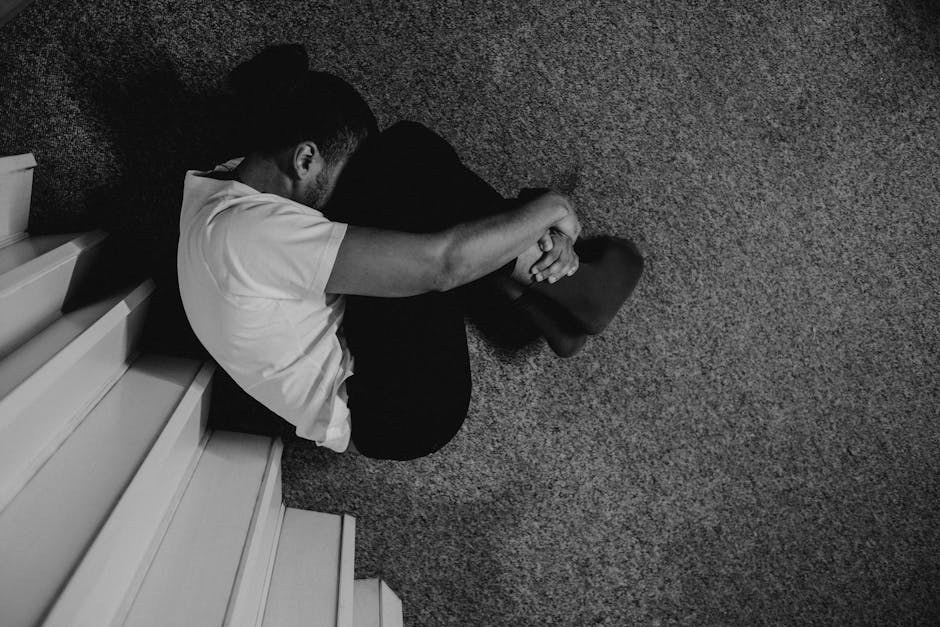Falling headlong into first love feels like stepping into bright sunlight after a long winter-warm, dizzying, and suddenly full of possibility. Your pulse quickens, everyday sounds seem louder, and tiny details turn vivid. It is thrilling, and it can also be bewildering. First love does not arrive with an instruction manual, and the emotion often moves faster than your ability to make sense of it. That is exactly why a little perspective helps. This guide gathers what many people gradually discover about first love, then reshapes it into clear, honest insight so you can enjoy the spark without losing yourself in the blaze.
Romance vs. Reality: The Soulmate Question
When first love sweeps in, it is easy to decide that destiny has finally delivered the one. Friends may cheer, or they may pull you aside to say they are not convinced. You then face a quiet fork in the road-believe the chorus, or trust the drumbeat in your chest. Most of us choose the second option at least once. First love feels unique because it is new to you, and newness has a way of sounding like fate.
Early days often glitter. Messages arrive at unexpected hours; small surprises land on your doorstep; shared jokes make even dull errands feel like adventures. First love can turn ordinary minutes into keepsakes. Then, as the initial rush settles, routines appear. Enthusiastic gestures shrink to manageable habits. You start to notice how you each respond when plans change or when expectations are unclear. None of this is a failure-it is the moment when fantasy hands the pen back to reality.

Sometimes reality is kind. Sometimes it is a teacher. A conversation that begins with tender smiles can end with “we need to talk,” and your heart may hear a sentence it never wanted to meet. The shock can be heavy, yet even the hard endings of first love carry lessons that shape who you become. Not every early romance is a forever story-often it is a chapter that shows you what forever might someday require.
So, is first love your soulmate? It could be, but it does not have to be. Think of first love as the first big rehearsal for a life you want to perform with confidence-an experience that trains your instincts, sharpens your boundaries, and broadens your capacity for tenderness.
What First Love Quietly Teaches You
-
You May Start to Live Around the Relationship
Relationships thrive on attention, and first love can claim the lion’s share. Group chats go quiet, weekend rituals with friends slide off the calendar, and invitations collect dust because your calendar now orbits one person. The shift often begins innocently-rescheduling a movie night here, skipping a hobby meet-up there-but over time it can redraw your social map.

This is understandable. First love sets off a sense of urgency-time feels precious, and you want to spend that time together. Yet connection breathes better when each person keeps hold of their wider world. Your friendships are more than background characters; they are the network that steadies you when romance wobbles and celebrates you when it soars. Preserving them is not a rejection of first love; it is a way of honoring the whole of who you are.
Try simple adjustments that protect balance. Keep one standing plan with friends each week, even if it is brief. Share updates with your partner and invite them occasionally, but also maintain events that are just yours. First love is richer when it fits into a sturdy, many-sided life.
-
Emotions Can Be Intense-and Sometimes Confusing
First love can make your inner weather change without warning. One glance lifts you to bright skies; one unanswered message invites a storm. Such intensity does not mean you are doing it wrong-it means you are learning what big feelings do inside a real relationship. The body can echo what the heart is trying to say: fluttery stomach, light head, racing thoughts. In the moment, those signals can blur into each other, and excitement may look like certainty.

Because of that blur, attachment can sometimes shift into obsession. You might catch yourself checking your phone every few minutes, replaying conversations, or drafting speeches you never send. If your day rises and falls only with their attention, pause. Healthy first love shares space with school, work, rest, and play-it does not swallow them. When the relationship becomes the only source of comfort, it quietly turns into a dependency that leaves you fragile.
Come back to basics that steady emotion: sleep well, eat real meals, move your body, and spend time with people who know you outside this story. Reflect on what specific actions make you feel safe-clear plans, honest updates, simple affection-and speak them aloud. Naming what you need is not a demand; it is a bridge. First love grows wiser when you recognize your feelings without letting them run the entire show.
-
Your Passions and Hobbies Need Protection
First love often asks for one more hour-one more call, one more late-night walk, one more lingering breakfast-until your week contains fewer of the activities that once shaped you. Maybe you used to lift weights at dawn, practice piano after dinner, or sketch in a quiet café on Sundays. When invitations from your partner consistently collide with those rituals, it is tempting to choose romance every time. You tell yourself you will return to your passions later.
Here is the hidden cost: passions are not extras; they are anchors. They build confidence and supply the energy that you bring back to the relationship. When you abandon them, the relationship becomes responsible for all your joy, which is a heavy assignment for any bond. Protecting your hobbies is not selfish-it is a gift to both of you.
Set a rhythm that respects both sides. If your workout is nonnegotiable on certain mornings, state that kindly and suggest meeting afterward. If your art class lands on the same evening every week, keep it, and trade spontaneous plans for a weekend date. First love deepens when each person keeps growing on their own terms and then returns to share the progress.
-
Expectations Can Drift Toward Movie Scenes
Stories shape expectations. When your shelves and screens are full of sweeping reunions and grand declarations, first love may start to feel as if it should follow a script-surprises every Friday, poetic texts every morning, resolution after every disagreement within a single, tidy scene. Real life, though, runs on different timing. People get stuck in traffic, money runs tight, moods dip, and apologies sometimes take a day to form.
When you measure your relationship against a highlight reel, quiet gestures can look small. But the small, steady acts-walking home together after a long day, remembering how you take your tea, listening without trying to fix-are the building blocks of trust. Expecting daily fireworks will eventually exhaust both of you. Expecting consideration and honesty, on the other hand, creates a reliable floor where joy can land.
Talk openly about what affection and commitment look like to you. Maybe you value consistency over spectacle; maybe you love occasional surprises more than constant commentary. Clarifying this prevents you from chasing scenes and helps first love become a partnership instead of a performance.
-
Hope Is Beautiful-But It Needs Boundaries
Believing you are meant to be can feel like a warm light that guides you through rough patches. Hope matters. Yet when hope ignores what is happening in front of you, it becomes a mask. If respect is missing, if promises keep slipping, if your voice goes unheard, insisting that the story is destined to work can keep you stuck. First love does not improve because you try harder to believe; it improves because both of you choose better behavior.
Pay attention to patterns rather than isolated moments. One bad day is ordinary; a repeating cycle is information. If repeated dismissals, broken plans, or unkind words are part of the pattern, your task is not to invent new explanations-it is to decide what treatment you will and will not accept. Boundaries are not threats; they are the rules for how you care for yourself.
Sometimes the bravest act is letting go. Ending a relationship that no longer honors you is not a failure of first love-it is a sign that you learned from it. The compassion you show yourself during that choice becomes the foundation for healthier love later.
How to Carry Yourself Well Through the Experience
First love is easier to navigate when you move with intention. Consider these practices that turn raw feeling into grounded action. Keep a simple journal-three lines in the evening about what felt good, what felt confusing, and what you need tomorrow. Write without judging yourself. Over a few weeks, patterns emerge that are hard to notice in the moment. Share part of what you learn with your partner. Clear, kind sentences help you connect: “I feel calm when we make plans a day ahead,” or “I need a quiet hour after work before I’m ready to talk.”
Stay connected to people who knew you before this romance. They will remind you who you are beyond the role of partner. Choose one person as a check-in friend, someone who will tell you the truth with care. When emotions spike, talk it out rather than spiral alone. First love is powerful, but it grows safer when witnessed by people who want the best for you.
Finally, treat your own heart like something you are responsible for-not a problem to solve or a machine to control, but a living thing that benefits from decent daily care. Eat, rest, move, and create. These ordinary acts keep your mind clearer and your communication kinder, which makes first love more spacious and less brittle.
When the Story Changes
Some first romances last. Others transform-from partners to friends, or from everyday presence to a memory you carry with real gratitude. If a breakup arrives, grief may arrive too. That grief does not erase the value of what you shared; it acknowledges that something meaningful ended. Give yourself time. Keep the rituals that make you feel human, and let people help. Over time, you will notice that the painful parts loosen and the wiser parts remain.
If your story continues, keep learning each other. Ask better questions, especially after tension. What did we each hear? What would make next time kinder? First love that lasts does so not because it never stumbles, but because both people keep choosing repair over pride. The skill you practice in small disagreements becomes the skill you will use when bigger challenges eventually appear.
Whether your path leads to a shared future or a careful goodbye, the lessons of first love endure. You learn how to return to yourself after intense emotion. You learn how to protect your time without making love feel like an intrusion. You learn to value small, steady care above cinematic gestures. Most of all, you learn that your heart can be both soft and strong-open to connection, and anchored in self-respect.
Everyone encounters first love once, but no two journeys are identical. For some, it arrives like a summer storm and clears by morning. For others, it becomes the weather of an entire season. Let it teach you. Let it delight you. Let it remake your understanding of what you want and what you will offer. If it ends, release it with thanks for what it taught. If it continues, keep watering it with honesty and the ordinary attention that true closeness requires.
In the end, you do not have to label first love a soulmate or a mistake. You can call it what it actually is-your first deep encounter with the kind of affection you hope to share across a lifetime, an experience that introduces you to your own capacity for care. Hold on to that capacity. It will serve you in every chapter still to come.